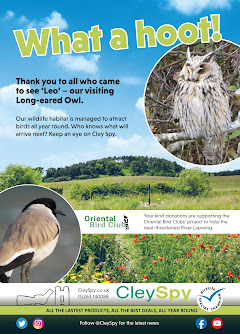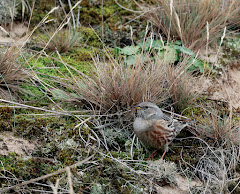https://twitter.com/NaturalEngland/status/1250793759249518592
I thought this was some kind of sick joke when I read this on Twitter just now! How can "Natural England" possibly keep that title?!!! Truly wicked! Can't believe what I'm reading! Why would they do that?! There must be money to be made, otherwise why would they?! Maybe a percentage of sale of each Peregrine, when sold to Arab states? Quote: "Following comprehensive discussions, we concluded that birds already held in captivity cannot provide verifiably British birds."After all a true 'British' Peregrine will fetch a high price won't it?! Wrong, cruel and completely unnecessary!😠
Here is their full explanation or click on the top link:
Yesterday (15 April) we granted licences for three falconers to permit the taking of a small number (six in total) of peregrine falcon chicks from the wild for use in falconry. Each falconer intends to take one male and one female chick to form a breeding programme with the other licensees.
We understand that some people may have questions and concerns over the taking of birds from the wild and so I wanted to outline more about our decision.
We issue wildlife licences for a range of purposes, and falconry and aviculture are listed as purposes for which licences can be granted under the legislation. This includes the potential to take a small number of birds from the wild for these pursuits – but only if strict welfare and conservation conditions are met. The taking of birds from the wild for these purposes is also practised in a number of other European countries.
Our expert staff have taken care to ensure the strict legal tests have been met, and that there will be no negative conservation impacts to the population. To ensure this is the case, the licence holders need to meet a number of conditions before they can take any chicks from the wild. We have also put in place strict conditions to safeguard the welfare of any chicks taken, and we will be closely monitoring the operation throughout.
Conservation status of peregrine falcons
Peregrine falcons have a conservation status of green which means they are widespread and their numbers are not under threat. In fact, the species’ current range and numbers are greater than at any time since detailed recording began in the 1930s. The peregrine population has particularly increased over the last 50 years – there were just 47 breeding pairs in England by the 1970s but by 2014 this number had increased to 826 breeding pairs.
Conditions of the licence
Part of the licence assessment process is to consider the expertise of the applicants and those involved in any field work. The applicants have also had to demonstrate that they will appropriately consider, and provide for, the welfare of any chicks taken.
We are only permitting a chick to be taken from a nest where three or more chicks are present. We know from detailed studies that peregrines typically lay 3-4 eggs and that only two of these are likely to survive to adulthood. We have specified that the smallest (weakest) chick must be taken from the nest and so are only permitting the taking of a chick which would ordinarily not survive in the wild.
We will be closely monitoring the operation including through asking the applicants for evidence to ensure compliance, whilst staying within the government guidelines around Covid-19.
We have limited the licence period to two years and retain the power to suspend or revoke any licence if necessary.
Why do these birds need to be taken from the wild?
Falconry is an ancient tradition which has been practised in England for centuries and is recognised as an ‘intangible cultural heritage of humanity’ by UNESCO. The applicants wish to breed verifiably British peregrines for use in their falconry activities, and the European Commission’s (EC) Wild Birds Directive includes reference to the sustainable use of species to fulfil cultural requirements, providing this does not affect their conservation status.
Following comprehensive discussions, we concluded that birds already held in captivity cannot provide verifiably British birds. This is because it is incredibly difficult to definitively establish the provenance of birds held in captivity due to poor documentation.
Wild peregrine falcons which have arrived in captivity due to injury are also not likely to be suitable as breeding from a bird from the wild is much more difficult than one reared by humans – they are simply not used to humans and are not as likely to breed successfully as a chick taken from the wild and reared by a human.
The above alternatives have been carefully considered by Natural England when reaching a decision. This has included the need to consider the alternatives and evidence in a manner proportionate to the likely conservation impacts which could occur from the licensable activity. In concluding our decision we have noted that there are likely to be some minor conservation benefits to the peregrine falcon population as a result of these licences; for instance in reducing the likelihood of non-native and hybrid birds escaping into the wild during falconry.
Are these licences a one-off?
These licences are intended to provide birds for a specific breeding programme and the issuing of a licence does not mean that Natural England will issue licences for further taking of wild birds in future.
This will provide UK native peregrine falcons to falconers and potentially limit the amount of peregrines taken from the wild in the future, and it will also have the added benefit of creating a captive population on known provenance which we have never had before and would give us options in the future.
In summary, while we do understand that many will find taking these magnificent birds from the wild uncomfortable - our rigorous approach has ensured that this will have no impact on populations, will be done humanely and will support legitimate and responsible falconry practices.








































No comments:
Post a Comment